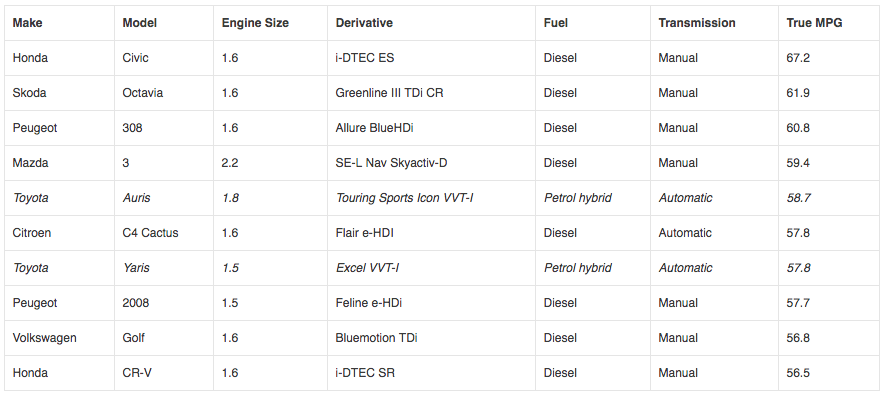Emissions Analytics delivers big data to ENTRIS in definitive HGV emissions tests
Emissions Analytics delivers big data to ENTRIS in definitive HGC emissions tests
Do a PhD with King’s College London and Emissions Analytics
Characterising non-road mobile machinery emissions through portable emissions testing and emissions inventory development
Characterising non-road mobile machinery emissions through portable emissions testing and emissions inventory development
An exciting opportunity exists to investigate the emissions from vehicles and generators on construction sites working with academic, industry and government partners to deliver a scientifically ground breaking and policy relevant PhD. Current emissions inventories estimate that Non-Road Mobile Machinery (NRMM) contributes approximately 10% of the NOX and PM10 emissions within London. However, there is a large uncertainty in this estimate as very few real-world emission measurements have been made of these sources, instead relying on engine test beds and activity estimates have been based on simplified assessments of construction activity. This project aims to address both of these aspects by undertaking state-of-the-art Portable Emissions Measurement System (PEMS) tests on NRMM machinery and utilising the latest information available through London’s NRMM register to assess the fleet activity. An opportunity also exists to test innovative emissions abatement solutions to provide policy-relevant scenario testing for emissions abatement.
For full details about the project, please visit http://www.kcl.ac.uk/health/study/studentships/div-studentships/aes/green.aspx
Motor Trend: The world’s two most efficient internal combustion cars
Real-world testing of hybrids in California read more
Hybrid efficiency put to the test
Despite common perception, the advantage of hybrids over frugal diesels is often illusory, if judged solely on fuel economy. Having tested over 30 hybrids in the UK and US, Emissions Analytics is able to analyse the data to understand how they really perform.
Despite common perception, the advantage of hybrids over frugal diesels is often illusory, if judged solely on fuel economy. Having tested over 30 hybrids in the UK and US, Emissions Analytics is able to analyse the data to understand how they really perform.
To illustrate the point we have taken a sample of 10 vehicles tested since 2013 – two standard hybrids versus 8 diesels – from the real-world fuel economy testing we conduct with What Car? in the UK. Each has an engines in the 1.5 to 2.2 litre range, power up to 150bhp, two-wheel drive and with hatchback, saloon or estate body style. The table shows the sample, ranked by fuel economy with the best MPG at the top:
While hybrids deliver good fuel economy in real driving, they can be eclipsed by up to 10mpg by some non-hybrid diesels. And that is after having taken into account any net changes in battery charge levels, to ensure that the hybrids are not penalised over our cycle. For certain driving patterns however, hybrids may still be the better option. Over our complete dataset of more than 500 vehicles in the UK, we can quantify how average MPG changes under congestion and aggressive and fast driving.
What this data shows is that hybrids suffer much less than their ICE equivalents under congested urban driving: on average a 3% penalty compared to 7%. In contrast, by doubling the average rate of acceleration the MPG falls by more for hybrids, especially diesel hybrids.
Comparing motorway driving to town driving, all types of vehicle show better MPG on the former, but the difference between hybrids and ICE vehicles is dramatic – typically because the downsized engines found in the hybrids are less suited for high speed motorway cruising.
Even more than their tolerance of congestion, the value of hybrids may be in their pollutant emissions, as even the cleanest diesels typically exceed the regulated values of NOx. In a recent report by the International Council on Clean Transportation, which analysed data from Emissions Analytics, the average exceedance was seven times for the latest Euro 6 diesel cars.
This compares to petrols, which generally meet the regulated NOx standards, even in real-world driving. Carbon monoxide is higher for the petrols, but again within the regulated values. Therefore, petrol hybrids have the benefit over ICE diesels in their effect on air quality, made even better as a proportion of urban driving will be on battery, with zero emissions. Although not included here, plug-in hybrids can show this pattern even more strongly.
In summary, hybrids deliver good but not best-in-class fuel economy, but they are typically the cleanest, and if you are a light-footed, congested town driver, they are ideal.
Archive
- AIR Alliance 3
- Air Quality 38
- Audio 3
- Climate Change 14
- EQUA Index 21
- Electrified Vehicles 28
- Euro 7 3
- Fuel Consumption/Economy 20
- Fuels 4
- Infographic 18
- Media 4
- NRMM/Off-road 3
- Newsletter 103
- Podcast 7
- Presentation/Webinar 18
- Press Release 19
- Regulation 16
- Reports 4
- Tailpipe Emissions 49
- Tyre Consortium 2
- Tyre Emissions 26
- Vehicle Interior 6







